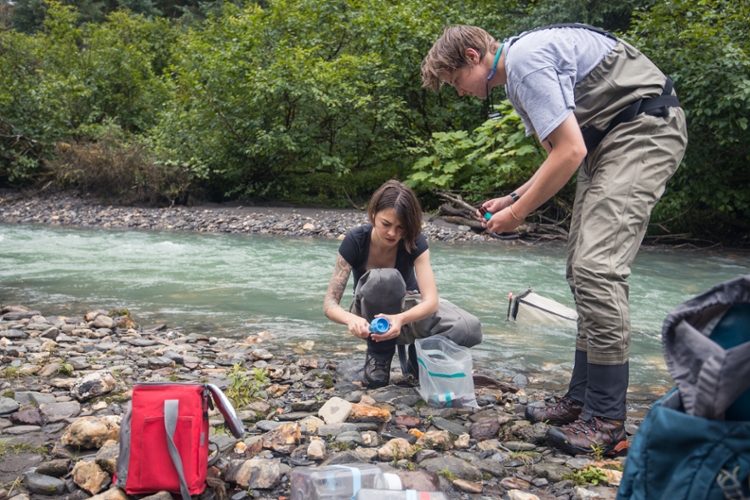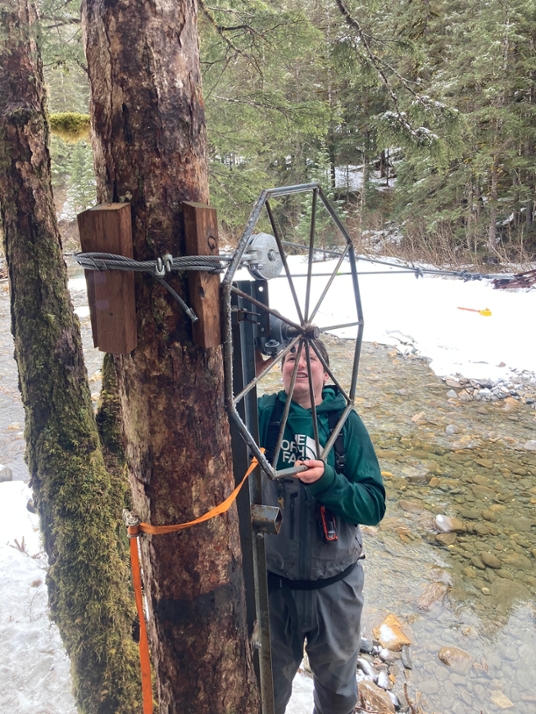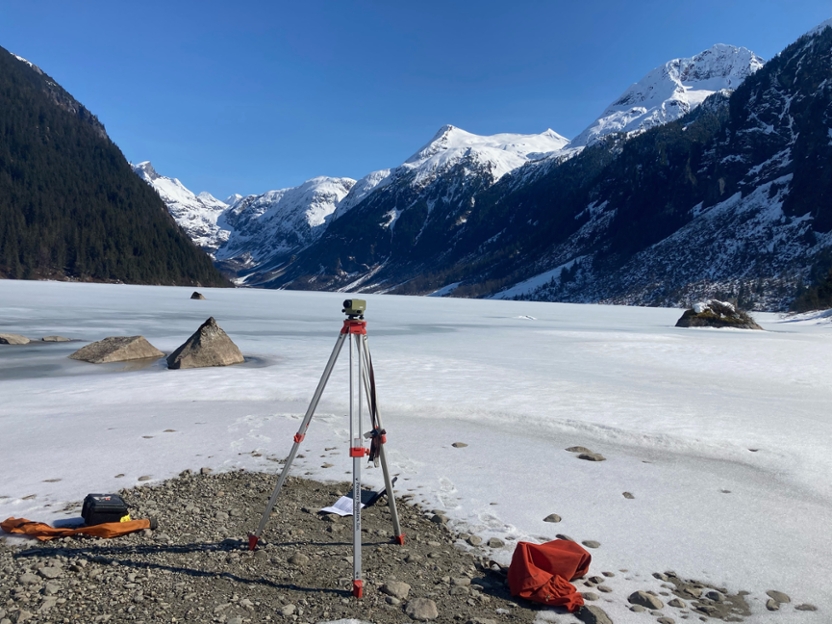From undergraduate to graduate studies, former ACRC intern Connor Johnson thrives in water quality research

Each year, UAS student interns make critical contributions to ongoing research efforts at ACRC. You’ll find them on bikes or skis headed out to collect water samples, set minnow traps, measure glacial outflow, or dig soil pits. These motivated students spend their internships earning credits toward their degrees, learning lab skills, presenting findings at conferences, and exploring career paths in research. In 2017, Connor Johnson was one such student. His passion for working outdoors and growing interest in natural sciences brought him to the UAS environmental science program. As his academic advisor, ACRC researcher and UAS professor of environmental science Eran Hood invited him to apply for a summer internship with ACRC.
"Connor's experience at the ACRC highlights the unique opportunities that UAS undergraduates have to be intimately involved in faculty research projects. This type of real-world experience gives UAS students a leg up with regard to post-graduate employment and graduate school," said Hood.

Johnson joined the rush of summer field sampling with a cohort of like-minded interns. Being new to Juneau and the research world, he quickly became familiar with the ecosystems, processes, and concepts that would lay a foundation for a career in research in the region.
“I learned how to work comfortably in a lab, how to filter water, how to organize and tabulate data, and how to talk about big science ideas on a colleague level. My time with ACRC pretty much set me up to stand out when I graduated. I learned things that I wouldn’t have learned in normal classwork,” said Johnson.
Over the following summers, Johnson conducted research on the influence of glacial runoff on juvenile salmon growth that would later be published in Limnology and Oceanography, highlighting him as a standout among his peers. Working with and learning from researchers at ACRC and the Juneau Forestry Sciences Lab (JFSL), including Jason Fellman, Ryan Bellmore, Emily Whitney, and Eran Hood, Johnson began to find his footing in the research community. He developed an interest in hydrology, setting his sights on a career with the USGS.
After graduation, Johnson started working as a hydrotech with the USGS Juneau Field Office. He was quickly building on the skills he learned at UAS, taking a suite of water quality samples and discharge measurements from transboundary rivers to monitor the influence of Canadian watersheds into Southeast Alaska. These samples, taken from five transboundary watersheds, will assess current water quality conditions to facilitate future assessments of potential impacts from upstream mining activities.
Now, Johnson is preparing to take the next step in his research career. With support from USGS, he plans to pursue a graduate degree through UAF in earth system sciences with a concentration in hydrology. Johnson will do most of his thesis work alongside USGS colleagues in Juneau, continuing many of the projects he has been involved with for the last five years.
"Connor has thrived at the USGS. He is taking the lead on transboundary water quality studies throughout Southeast Alaska and will soon be working toward his Master's degree with support from the USGS," said Hood.
Reflecting on the path that led him to this point, Johnson highlights the value of the connections he made through at UAS.
“As a small, secondary education institution, it has quite a robust environmental science and fisheries program. You get a lot of contact with your professors, who are well published and can offer you a lot of opportunities that you wouldn’t get at other colleges,” said Johnson.
Johnson credits his mentors at ACRC and JFSL with influencing his decision to pursue a career in research and stay in Alaska. “I think they are a big reason I’m still in Juneau, because I was able to learn in that environment,” he said.
